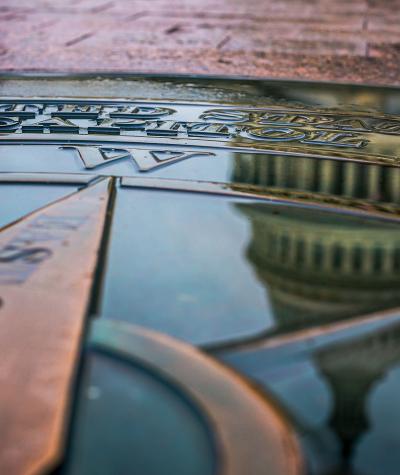Ethics investigations of members of Congress continue to show a trend of more lawmakers trying to block investigations into their alleged misconduct. From 2009 to 2020, approximately one third of lawmakers investigated by the Office of Congressional Ethics (OCE) did not cooperate with the investigation, according to cases that are public.
In 2021, that rate has increased to more than half of the subjects of investigation refusing to cooperate with the OCE. This troubling trend shows that members of the House of Representatives who block investigations should be held accountable because voters have a right to know that their elected officials are transparent.
Most congressional ethics investigations begin with the OCE, which the House created as an independent body to look into allegations of ethics violations. The OCE has broad investigatory jurisdiction over any violation of law or standard of conduct committed by a member of Congress.
This includes ethics rules violations, campaign finance violations and Stop Trading on Congressional Knowledge (STOCK) Act violations. Their mandate is vital for ethics oversight and accountability in Congress. However, Congress failed to give the OCE all of the tools necessary to do its job.
Most notably, Congress has not given the OCE subpoena power, which would allow the OCE to compel witnesses to cooperate with investigations. The result of this system is a lack of meaningful accountability.
As detailed in CLC’s study (see graphic that is at the bottom of this article) members who refused to cooperate with the OCE’s investigations are of all political and ideological stripes.
Rep. Mike Kelly refused to cooperate in an investigation involving potential insider trading. Former California Rep. Duncan Hunter, who was investigated for illegally furnishing a lavish lifestyle with campaign funds, failed to cooperate with the OCE (he later pleaded guilty and was sentenced to 11 months in prison).
Reps. Rashida Tlaib, Lori Trahan, Silvestre Reyes, Robert Andrews and Gregory Meeks all failed to cooperate with investigations for improperly spending or receiving campaign or official funds for their personal benefit.
In order to give voters confidence that their elected officials take ethics seriously, the OCE needs tools to investigate members of Congress and hold them accountable. House leadership of both parties should instruct their members to cooperate with the OCE, creating an expectation of cooperation that will enhance accountability and transparency.
Additionally, Congress should revise the OCE rules so that if a member of Congress does not cooperate, the OCE reports can be made public immediately, instead of after the significant delay that the current rules mandate.
The public reports will provide notice to voters, and representatives who choose not to cooperate, that attempts to block investigations will be met with consequences.
Finally, lawmakers should amend the obstruction of Congress law such that impeding an OCE investigation has the same penalty as impeding any other congressional investigation.
Public confidence in the integrity of democratic institutions is one of the hallmarks of a healthy democracy. At a time when our democratic institutions are continually undermined and public faith in them is thin, Congress should set an example by holding itself accountable to the public it serves.
